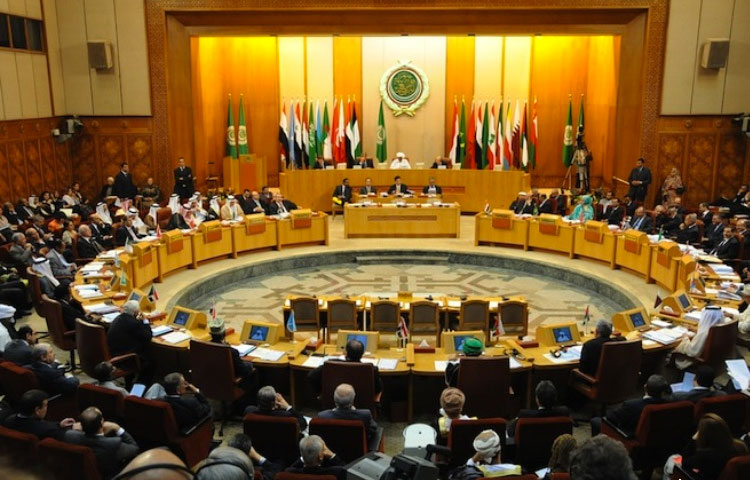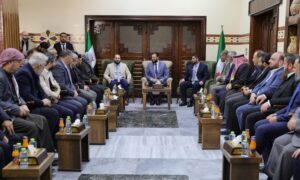
The Unified Arab Law: Demands for its implementation as a Middle Ground between Syrian State Law and Islamic Sharia

Supporters of the implementation of the Unified Arab law (such as the consultant Khaled Shebib, the judge Osama Al-Yatim, and Sheikh Khaled Al-Sayed) approach it as an intelligent solution for the disputes inside Syria around the jurisprudential references and their rejection of Syrian state law. They all see the implementation of the Unified Arab law as a way of satisfying those demanding the implementation of Islamic Sharia and those demanding the implementation of contemporary laws. They also explain that the courts that implement this law will not be described as terrorist because the law is implemented in the Arab League.
Those who reject the implementation of the Unified Arab law explain that it is not legally ready for implementation as it is a legal project that has been developed by the Arab League. The project aimed at canonizing the rules of Islamic Sharia so that is may become an inspiration that incorporates general principles, a reference that future laws may be drawn from. The law has not been confirmed/approved, and it has not been implemented in any Arab state until now. The law is formed of four books that discuss only 5 percent of the mass of legislation found in Syrian state law. Moreover, the sections of Syrian state law that are covered in the Unified Arab law overlap and are consistent with each other.
The jurist Haitham Al-Malih explains that, “There is no one in Syria today who has the legitimacy to issue and implement a new law. Under the current circumstances in Syria from instability, the absence of a parliament and elements of the state, those who issue new laws that have not be operable previously risks being subjected to legal accountability.”
continue all topic:
Prominent Judicial Bodies Formed in Liberated Syria
The Phase of Regression: ‘Sheikhs’ Replacing Judges
Peoples’ Courts in Autonomous Administrated Regions
Free Independent Syrian Judiciary Council
Three Authority References Warn of the Division of Syria
Syrian State Law: will its continued implementation help maintain the unity of Syrian territory?
Islamic Sharia: Military Brigades Reject Legal References and Insist on the Implementation of Sharia
Judicial Schemes and the Shape of Laws in Areas outside the control of the Syrian Regime
Judiciary in Aleppo is unable to counter the Hegemony of the Military
Rehabilitative Program for Prisoners in Aleppo
Deraa: The Judiciary Scheme, Shape of laws in it since its Liberation
Eastern Ghouta: Foundation of Independent Judiciary following Liberation
Judiciary is absent from Western Ghouta and Sharia Implementation in Qalamoon
Jaysh al-Fateh Promises to implement a Unified Judicial Reference in Idlib
Al-Nusra Front Controls Judiciary in Lattakia Countryside
Hama Countryside: Absence of Judiciary and Subordination of Khan Sheyhun court
Al-Waer court and resolving dispute by consensus in Homs
Judiciary in Deir ez-Zor terminated by ISIS
Attempts at founding Judiciary in Raqqa were terminated by ISIS
Judiciary System under Baath Rule
How do Syrians value courts’ performance and Judiciary in their liberated areas?
Killing Justice in the North of Syria
Higher Judiciary Institute in Aleppo: First Graduates in Liberated Areas
if you think the article contain wrong information or you have additional details Send Correction
-
Follow us :

















 A
A
A
A
A
A







 More Investigations
More Investigations